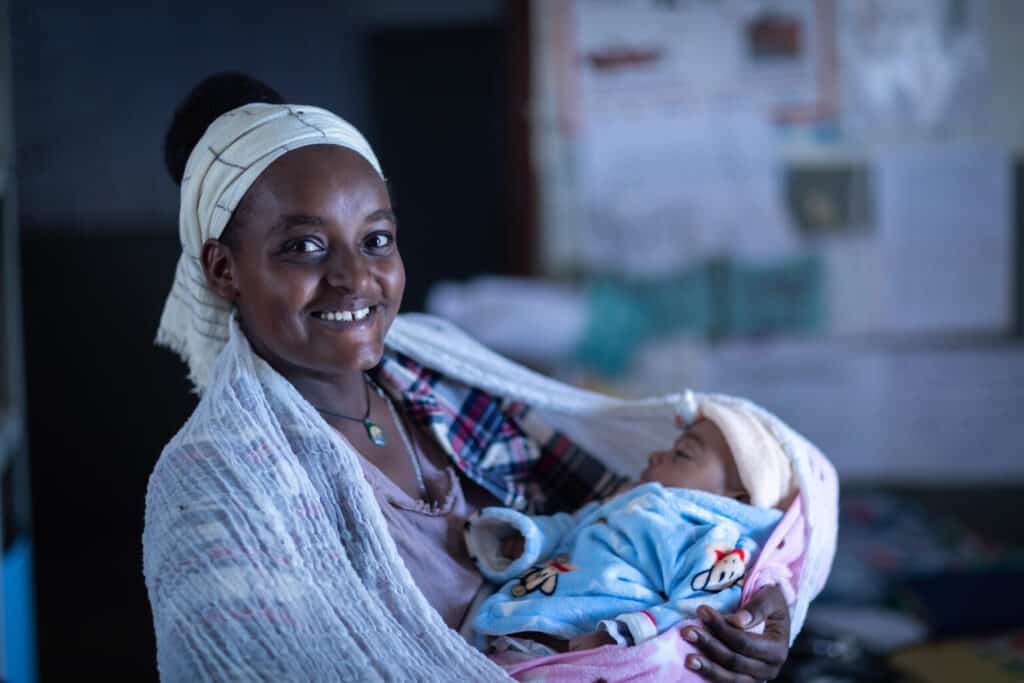Every year, poor nutrition affects countless women around the world. They deserve to be better accounted for. And there are periods in a woman’s life such as pregnancy and the period following childbirth when the risks to their health and well-being, and that of their children, are particularly high. Meet Kokobe Ashebir, a young mother from Sire, Oromia Region in Ethiopia. When Kokobe became pregnant, she started experiencing extreme fatigue, dizziness, and heartburn. However, after being introduced to UNICEF-supplied Multiple Micronutrient Supplementation (MMS), also known as multivitamins, everything changed.
“I used to experience extreme fatigue, dizziness, and heartburn. After a week of MMS, everything stopped,” Kokobe said. “It was good for my baby’s growth, to reach the expected weight and to give birth within the expected time of delivery. I love it and continue to take it even after my pregnancy.”
MMS is clinically proven to help boost the health of pregnant women, breastfeeding mothers, and their babies. It is particularly helping women living in rural areas where a diverse range of nutritious food is either unavailable or unaffordable. Women like Kokobe demonstrate the incredible impact that access to nutrition services can have on the health and well-being of women and their babies.
Published on the eve of International’s Women’s Day 2023, the UNICEF report “Undernourished and Overlooked: A Global Nutrition Crisis in Adolescent Girls and Women” highlights the status, trends, and inequities in the nutritional status of adolescent girls and women of reproductive age. The report reveals that more than a billion adolescent girls and women suffer from undernutrition, micronutrient deficiencies, and/or anemia.
The report also shows that the number of pregnant and breastfeeding adolescent girls and women suffering from acute malnutrition has increased by 25 per cent since 2020 in 12 countries hardest hit by the ongoing global food and nutrition crisis, from 5.5 million to 6.9 million. Moreover, adolescent girls and women in poorer regions and countries are the most affected by malnutrition.
In addition to the report, UNICEF has also published a statistical booklet with the latest key statistics on children’s and women’s nutrition for the world’s countries and regions, as well as a global database focused on women’s nutrition. This database currently provides basic information on the nutritional status of women worldwide, with data on key nutrition indicators such as anaemia and underweight. It will be expanded in the future to cover more indicators, including for assessing nutrition services, diets and practices.
The UNICEF report, statistical booklet, and global database on women’s nutrition highlight the global nutrition crisis faced by adolescent girls and women. They are UNICEF’s efforts to collect and monitor data on women like Kokobe and their nutritional status consistently, not just as part of temporary social campaigns and initiatives. By doing so, we could provide policymakers and researchers with critical data that can transform food, health, and social protection systems and ensure that every girl and woman has access to the nutrition and care they need to thrive. Kokobe’s story serves as a powerful reminder of the urgent need to build a more equitable and nutritious world for all, where every girl and woman can fulfill their potential.
